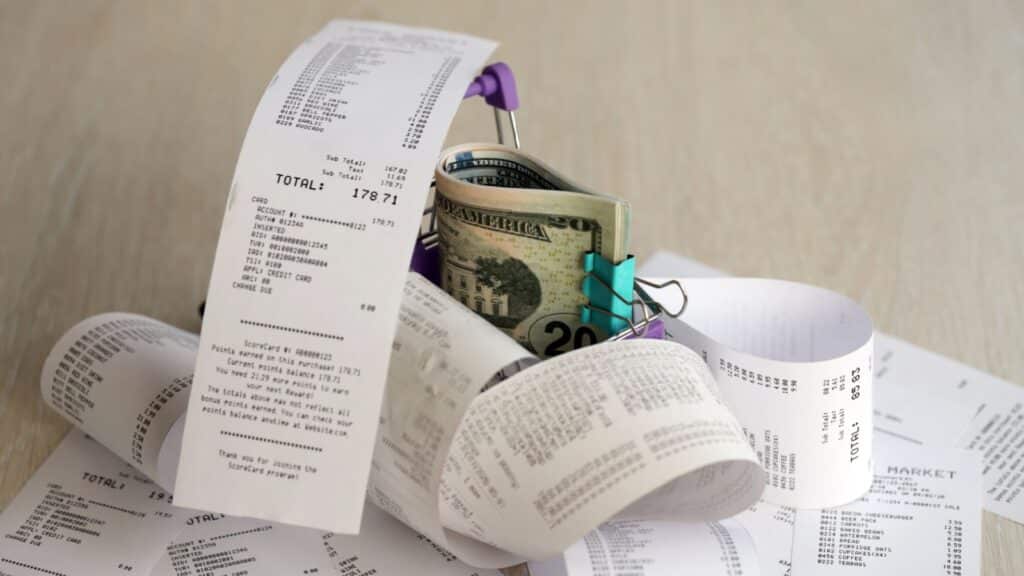Some families hand down recipes or traditions. However, others hand down a sense of anxiety that causes their kids to have a sixth sense about practically everything. Anyone who grew up with parents who worried a lot likely has some habits that seemed normal at the time but now stand out. Here are some signs that your parents were extremely anxious.
Apologizing for Normal Things

You bump into a chair and say, “Sorry,” then when someone else bumps into you, you also apologize. It doesn’t matter that the other person has made a mistake because you apologize automatically. You’re just used to smoothing things over. As such, saying sorry happens before you’ve even processed what you’re apologizing for.
Over-Explaining Simple Requests

Asking for help turns into a conversation that’s much longer than it needs to be. Rather than simply asking, “Can you give me a ride?” you launch into an explanation of your schedule and offer gas money before they’ve even answered. Essentially, you’re trying to prove you’re not a bother before anyone can think otherwise.
Seeking Permission for Small Actions

You’ll ask, “Is it okay if I sit here?” when there are twenty empty chairs or “Could I grab a napkin?” in your own friend’s kitchen. But you don’t really need to do so. The truth is that, along the way, your every little decision as a child needed verbal approval, even when nobody else expected it.
Rehearsing Texts and Calls

Before hitting send, you’ll rewrite a message five times and read it through a dozen times more. Then, you’ll add another emoji to make sure it comes across as you intended. Phone calls aren’t spontaneous either, as you mentally run through the entire conversation, including what they might say, so you’re never caught off guard. You fear not being in control.
Instant Replies to Avoid Worry

As soon as someone messages you to see if you’re on the way, you’ll immediately message back with your exact location and ETA. You can’t stand the idea of someone waiting and wondering. As a result, your responses come lightning fast, perhaps faster than they actually need to be.
Checking On Others’ Arrival and Safety

Likewise, you have an instinct to text “Did you get home?” as soon as an event ends. This is because your parents desperately needed check-ins when you were a kid. They’d call or text, perhaps even track you until they got that message saying that you had arrived. You do the same with your friends without thinking about it. It’s your version of normal.
Choosing Exit-Friendly Seating

The moment you walk into a room is also rather telling. Once you enter, you clock the exits so that you know exactly how to make a quick exit, should you need it. An aisle seat is perfect, and one near the door is even better. Of course, you don’t tell anyone about this. But your seating choices are planned out because easy escape routes just make you breathe easier.
Packing “Just-In-Case” Items

No, you’re not simply trying to “be prepared.” Your parents probably carried a pharmacy’s worth of medicine and a change of clothes in the trunk, so you learned to do the same thing. Leaving the house empty-handed was practically asking for trouble. Now, you’ll take a charger, painkillers, snacks, and tissues, just to go on a quick walk. But you don’t need to.
Triple-Checking Plans Before Saying Yes

Other people say yes to plans and figure out the details later, but not you. Instead, you cross-reference calendars and check the weather, then you’ll look up parking and mentally run through potential complications. This kind of behavior comes from growing up with parents who treated unknowns like massive risks, and committing blindly just isn’t in your DNA.
Preferring Familiar Routes Over Fun Detours

Your parents made sure that you knew the exact exit numbers and traffic lights, as well as where cell service dropped off, whenever you went for a drive. After all, straying from the known route allowed unexpected things to happen. That wasn’t allowed. So now, whenever someone suggests a shortcut, your brain rejects it immediately because there are too many variables.
Softening Opinions to Avoid Conflict

The habit of softening your opinions comes straight from watching anxious parents try to keep everyone calm. You don’t know how to say something like “That doesn’t work for me.” Instead, you soften everything by saying things like “I mean, I could be wrong, but…” or “Maybe it’s just me.” You fear any reaction that might cause someone to get stressed.
Keeping Proof for Everyday Errands

Every time you have errands to run, you’ll take multiple screenshots of confirmation numbers and receipts. It’s not random. This is exactly how your parents handled uncertainty, and whenever something went wrong, they used this to prove they were right. You learned to keep evidence not out of paranoia, but because that’s what your parents taught you “being responsible” looks like.
Leaving Early to Avoid “Getting Stuck”

Growing up, being stuck anywhere, like in traffic or at long events, made your parents visibly tense. You picked up on that. This leads to you bailing before the crowd leaves and skipping the last song. You’ll also make sure to park near the exit, although not because you’re impatient. It’s a form of preemptive stress control that you learned from them.
Minimizing Noise to Avoid Bothering Anyone

Being quiet was how you survived at home, as your anxious parents jumped at every little noise. As a result, you learned to shut cabinets gently and walk lightly to avoid even the slightest amount of noise. You still do it now. Sure, nobody usually cares, but you’re fearful of setting anyone off or giving them a chance to do so, too.
Asking for Clear Signals and Confirmations

Vague plans are the worst for you. Without clarity, your brain immediately starts filling in worst-case scenarios, and you can blame this on the way your parents double-checked everything. Such hyper-clarity became your comfort zone. Now, you crave any and all specifics like landmarks and times, as well as possible backup options.
Over-Preparing for Tiny Interactions

Just ordering coffee? You don’t know how to do that. Instead, you mentally rehearse your line before reaching the counter, and this is directly a result of your anxious parents. They taught you to rehearse and anticipate to avoid any hiccups. Now, the simplest of everyday interactions are a kind of performance that you need to succeed at.
Defaulting to Self-Blame During Mix-Ups

The second something goes wrong, your reflex is to work out what you messed up. But it’s not always your fault. Your overly nervous parents often assumed responsibility for the problem, partly to control the situation, and you picked up that reflex. It makes shared mistakes feel like yours to fix.
Phone Battery Safeguards

You don’t wait for your phone to hit red before reacting, as a half-full battery already makes you uneasy. You top up whenever you can. There might be a charger in your car and another in your bag, which is a habit that came straight from your parents’ constant warnings about being unreachable in an emergency.
Tactics Narcissistic Parents Use to Control Adult Children

If you’ve ever felt like you’re being a human yo-yo in your adulthood, it’s not in your head. Here are 15 manipulation techniques employed by narcissistic parents—some of which might ring a little too close to home.
Tactics Narcissistic Parents Use to Control Adult Children
Ways You Could Be Turning Your Kid Into a People-Pleaser

Unfortunately, it happens more often than you’d think. It’s usually the day-to-day habits that affect how kids handle other people’s feelings. Here are some ways that you could be turning your kid into a people-pleaser without anyone realizing it.
Ways You Could Be Turning Your Kid Into a People-Pleaser

